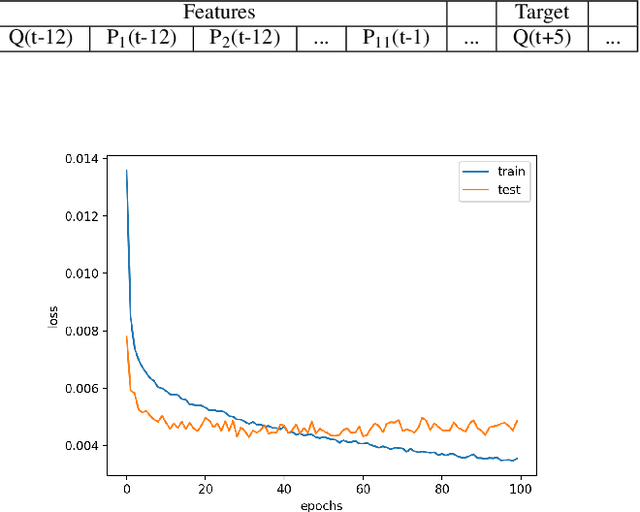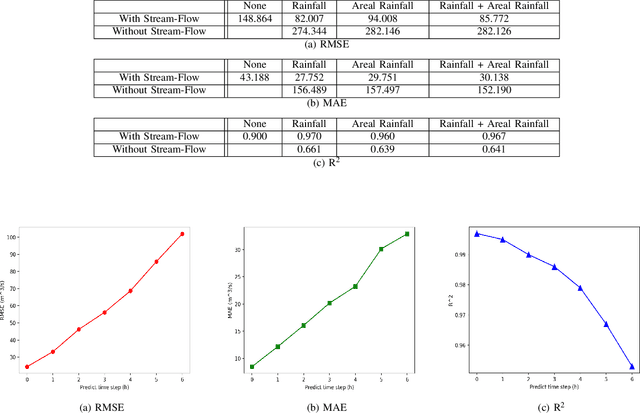Stream-Flow Forecasting of Small Rivers Based on LSTM
Paper and Code
Jan 16, 2020



Stream-flow forecasting for small rivers has always been of great importance, yet comparatively challenging due to the special features of rivers with smaller volume. Artificial Intelligence (AI) methods have been employed in this area for long, but improvement of forecast quality is still on the way. In this paper, we tried to provide a new method to do the forecast using the Long-Short Term Memory (LSTM) deep learning model, which aims in the field of time-series data. Utilizing LSTM, we collected the stream flow data from one hydrologic station in Tunxi, China, and precipitation data from 11 rainfall stations around to forecast the stream flow data from that hydrologic station 6 hours in the future. We evaluated the prediction results using three criteria: root mean square error (RMSE), mean absolute error (MAE), and coefficient of determination (R^2). By comparing LSTM's prediction with predictions of Support Vector Regression (SVR) and Multilayer Perceptions (MLP) models, we showed that LSTM has better performance, achieving RMSE of 82.007, MAE of 27.752, and R^2 of 0.970. We also did extended experiments on LSTM model, discussing influence factors of its performance.
 Add to Chrome
Add to Chrome Add to Firefox
Add to Firefox Add to Edge
Add to Edge